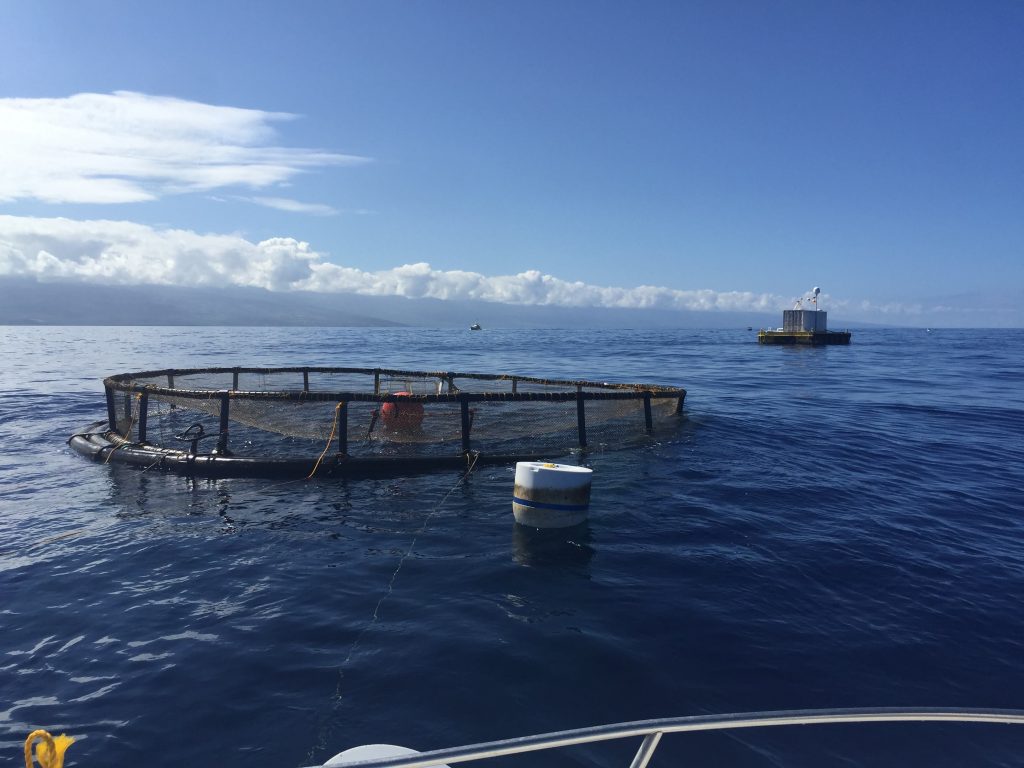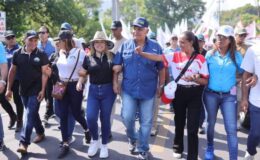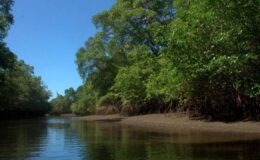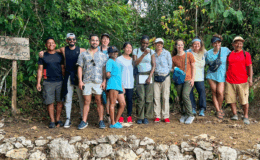What is “Bojal’a” and what does it mean to Chiriqui?
- By : Panama Now
- Category : Chiriqui, Conservation, Economy

ANSWER: Delicacy fish to be farmed responsibly with US corporation.
The US-owned company Forever Oceans Panama will plant bojalá in the Gulf of Chiriquí and its first production will be exported to the United States in 2021.
In October 2020, a US investment group will begin planting bojalá on sea farms in Charco Azul Bay, in the province of Chiriquí.
The aquaculture activity that involves an investment of 50 million dollars seeks to satisfy the most demanding palates of consumers in the United States, Japan, Europe and Panama.
The bojalá is a species native to most of the world’s tropical coastal waters, including Panama. Its meat is highly appreciated in international markets, especially Japanese. It is a luxury fish, of “sashimi” quality. This name is a culinary concept from Japanese gastronomy. Its meat is so juicy and spongy in texture, but firm at the same time that you can eat it raw.
In the bay of Charco Azul, at a distance between 3 and 29 kilometers from the coast, the company Forever Oceans Panamá, SA plans to install the first two of 29 production cages in the open sea of bojalá. The cages are invisible on the surface because they will be submerged at 20 meters and the fish will be fed remotely by a digitized system that they will monitor through cameras.
Last January, the President of the Republic Laurentino Cortizo, during a Council of the Agricultural Cabinet, in Chiriquí gave the company executives the concession for 20 renewable years for aquaculture production in 58,000 hectares of open sea in the Gulf of Chiriquí.

Sandro Rezzio, director of Operations of Forever Oceans Panama, stated that they chose the Gulf of Chiriquí, in Panama because its waters meet very particular conditions, such as stable temperatures that fluctuate between 26 degrees and 32 degrees; with an average of 28 degrees, which is ideal for the development of the species rivoliana, commonly known as bojalá, amberjack or lemon fish. Also there are no hurricanes.

The businessman guarantees that the intensive cultivation of native fish from the Chiriqui Gulf will be carried out in a clean, healthy and natural environment. Of the 58,000 hectares under concession, the company will only use 10.6% hectares or the equivalent of 6,500 hectares for the production of cage flock. The rest will be used for the conservation and protection of marine species, Rezzio explained. Each cage will have a biosafety space where there is no contagion or transmission of any external entity that may affect the shell or the ecosystem.
In the Gulf of Chiriquí, only the reproductive bulls will be captured and transported and maintained in the laboratory, where they will mate. The laboratory is located in an area of 13 hectares in the Manaca Civil community, in the Rodolfo Aguilar Delgado district, Barú district.
There the bojalá fry will be grown in ponds on dry land and when they reach a weight of 10 grams they are ready to be sown in marine cages.
The waters of the Gulf of Chiriquí comply with the favorable conditions for the development of the rivolian surola species, better known as bojalá ”, highlights sandro Rezzio, director of operations of Forever Oceans Panama.
The project will be developed gradually, reaching a maximum production of 20,010 metric tons per year in 2028 in 29 cages, according to the environmental impact study submitted to the Ministry of Environment.
Each cage with a diameter of 50 meters will have the capacity to breed 360 thousand fish in eight-month cycles. The expected commercial weight is between 2.2 kilograms and 2.5 kilograms. Per cage they plan to produce 792,000 kilograms of fish. And from 2028 the projections are to produce 10.4 million juveniles per year.

The Food and Agriculture Organization of the United Nations (FAO) points out that world consumption of fish per capita reached a new record of 20.5 kilograms per year and is expected to continue growing in the next decade, putting highlights its critical role in global food and nutrition security.
“Sustainable aquaculture development and effective fisheries management are key to sustaining this trend,” highlights FAO in The State of World Fisheries and Aquaculture 2020 (SOFIA).
According to SOFIA forecasts, aquaculture will continue to expand – albeit at a slower rate – and farmed fish will have an increasing share of consumption and trade over the next decade.
Flor Torrijos, administrator of the Panama Aquatic Resources Authority (ARAP), stated that aquaculture has become a highly technical activity, with excellent yields, offering employment and food security in the country.
In addition to generating jobs, “the installation of the marine cages in the bay of Charco Azul will attract more fish, which will benefit artisanal fishermen in the area,” said Torrijos.
Currently 3.8 million people work in aquaculture in the region, 2% of the world total. Employment in the fisheries and aquaculture sectors is growing moderately, while aquaculture production has experienced fairly high sustained growth, highlights the FAO.
In Panama, 21 concessions have been granted for aquaculture development and another 22 are under evaluation for approval.
The culture in marine farms is developed in Divisa, Aguadulce, Coclé province; Gualaca, Chiriquí province; Achotines Bay on the Azuero Peninsula, the coast up from Colón and Vacamonte, in Panama West.
Charco Azul aquaculture production will require the Enrique Malek International Airport in David, Chiriquí to have the appropriate logistics infrastructure and services for the movement of perishable cargo, said Felipe Ariel Rodríguez, president of the Competitiveness Center of the Western Region (Cecomro) .

The businessman reiterates the need for the State to improve road infrastructure and basic services to take better advantage of the private investments that are being developed in the western region of the country.
“We hope that the public sector will be encouraged for private investment to grow in the country,” said Rodríguez.
Forever Oceans Panama plans to reap the rewards of its millionaire investment in mid-2021. The production will be processed in a processing plant located in Pedregal, David and will be exported in a first stage as fresh fillet to the United States. The price of a kilogram of puff may be $ 13.50.



No Comments